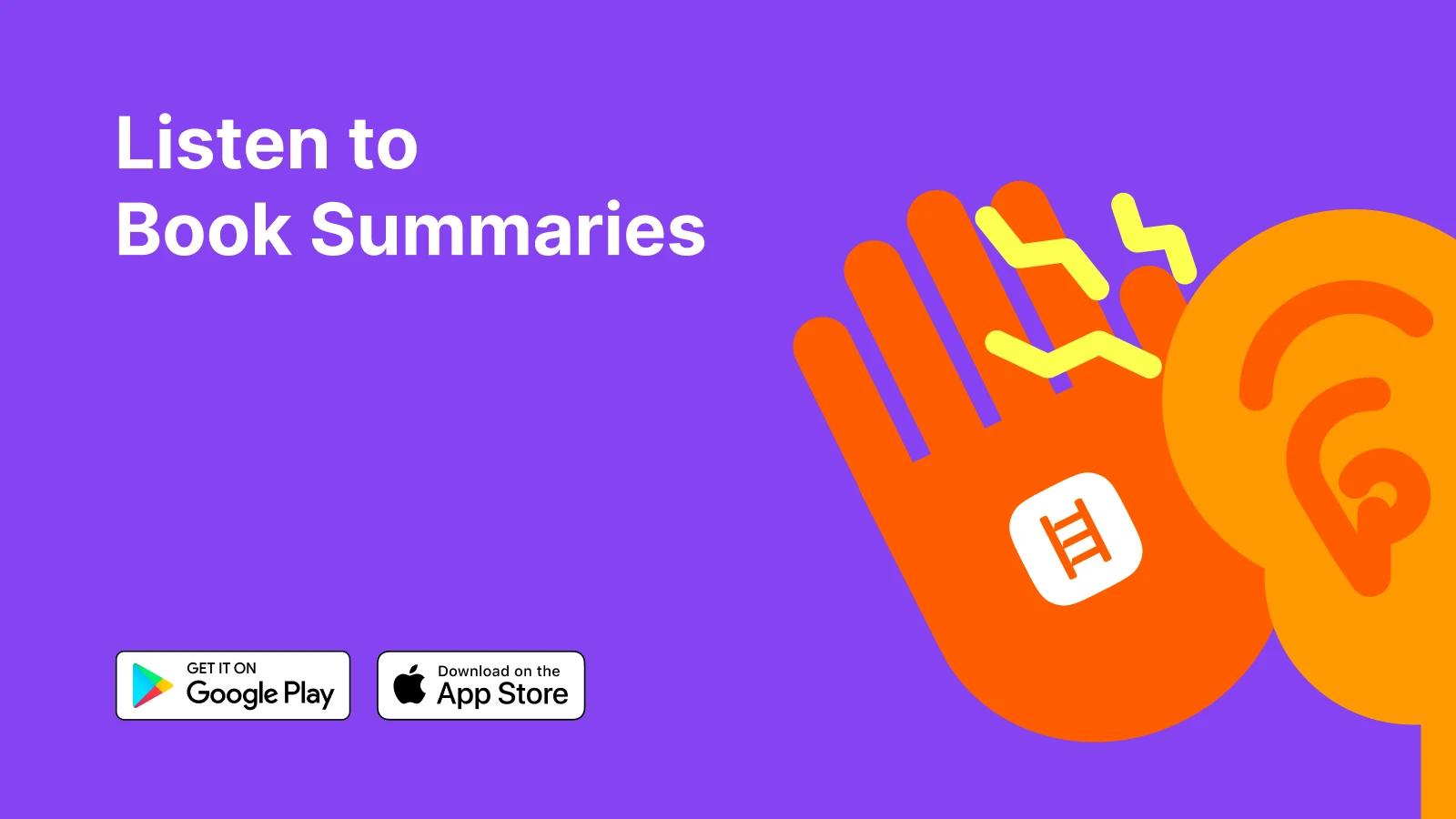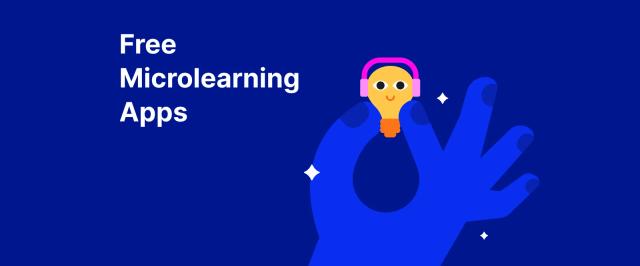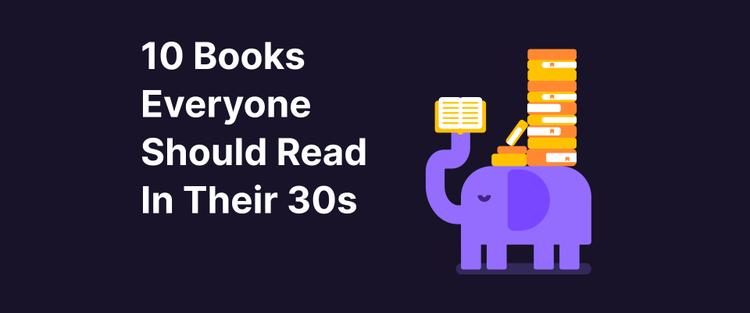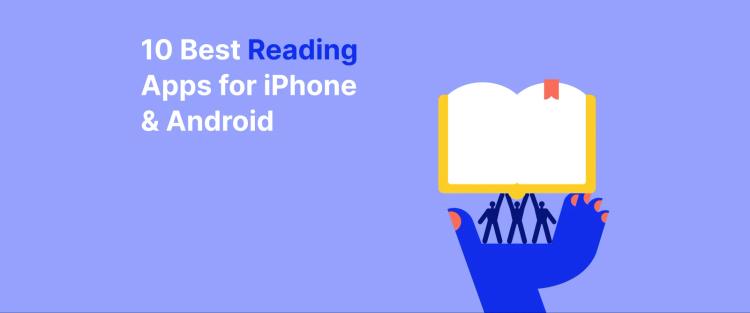Each tip below is inspired by leading guides on productivity, neuroscience, and self-learning that are available in Headway's library of short book summaries. From the ground-breaking learning techniques in 'How We Learn' by Benedict Carey to hands-on insights in 'Ultralearning' by Scott H. Young and 'Deep Work' by Cal Newport, here are some of the best ways to remember everything you've read.
If you want to turn these ideas into daily habits — especially if you’re wondering how to retain more from audio learning — Headway makes it effortless with 15-minute summaries, spaced-repetition tools, and bite-sized insights you can revisit anytime.
Ready to boost your memory and stop rereading the same paragraph over and over? These 12 smart strategies will help you retain more from every page and learn with ease.
Try Headway today to build a stronger memory in just a few minutes a day.
Quick tips to remember what you read:
Set a reading goal before you start
Highlight and annotate key ideas
Use the blank sheet method
Summarize each chapter in your own words
Listen to audio summaries on the Headway app
How to retain what you read in 12 easy steps
Knowing how to read a book and retain information is an essential skill for people who read on a daily basis for both personal and professional purposes. For this reason, here are some of the best tips on how to improve reading retention.
1. Set a goal before you start reading
When you start a new great book or work document, being clear about your goals can help you become more engaged in the material at hand. For instance, the best way to read a book about wildlife in the Arctic is with the intention of learning about how climate change is affecting polar bears.
Doing this will help you focus on that specific idea. Otherwise, you could end up taking in new knowledge that you don't really need. One way to do this is by asking yourself a question before looking at the material for the first time and aiming to answer the question in your own words by the end of your reading session.
This could be something specific, like, "What do polar bears like to eat in the winter months?" During your reading, graze each chapter, headline, and paragraph until you reach your answer. This will make you more likely to reach your desired outcome and increase your productivity levels.
📘 Discover goal-setting strategies on Headway.
2. Use strategic skimming to absorb key points
Now, this method may seem counterproductive at first. After all, you're technically trying to avoid unintentionally skimming so that you can actually absorb the reading material. However, people who frequently find themselves in bouts of reading regression can sometimes use skimming the whole book to their advantage.
Following Mortimer J. Adler and Charles Van Doren's advice in 'How to Read a Book,' skimming a book will help you get a sense of its central ideas and structure.
As you start a new book, the first place to look is the table of contents so that you gain a better insight into what you can expect from this text. Then, take it to the next level by choosing a section you'd like to skim.
In this section, graze through each paragraph while picking up keywords and information here and there. In due time, you will be able to understand the main point of a paragraph by selectively skimming over unimportant information.
📘 Master active reading techniques with Headway.

3. Pick books you can complete
A big mistake that most readers make is taking on more reading than they can handle. This can either be due to reading too many books at one time or attempting to read an extremely long piece of text without any prior plan or strategy.
As a result, they can end up becoming bored or overwhelmed with a large amount of information that needs to be processed in a short span of time. One memory technique is to keep the volume of your reading material small.
However, if you have already garnered a large reading list or you are required to read a long list of books for professional purposes, you may want to quit the books that you find hard to read and move on to other books that explain your desired topic better. If this is not possible, consider focusing on the main ideas rather than reading the entire book.
4. Master reading mechanics for better retention
From grade school, children are taught to read the old-fashioned way – from left to right, top to bottom. However, as children grow up, they can veer slightly off course and adopt improper reading mechanics that can eventually lead to poor reading retention. This can look like frequent regressions, speaking the words as you read them, and a lack of strategic eye movement.
Skillful reading that uses proper reading mechanics can be constituted as follows:
Fewer regressions or rereading of material
No lip movements or vocalization
A wider eye span that picks up multiple words at once
To improve your reading mechanics, move your eyes forward consistently and read in groups of words rather than individually. Then practice reading with your mouth tightly closed, reading only the words in your head. Lastly, cover what you have read with a card that will stop you from going back to previous material.
📘 Learn focus techniques in 'Deep Work' on Headway.
5. Read with purpose: Find good books that add real value
Not all books are educational, but most books are designed to teach you some sort of valuable lesson that you can potentially apply to your daily life. This can range from a simple how-to guide, such as 'How to Stop Worrying and Start Living' by Dale Carnegie or 'How to Make People Like You in 90 Seconds or Less' by Nicholas Boothman, to a much broader topic, such as the evolution of species.
As readers begin a book with the intention of using what they read to achieve a positive outcome in their lives, they might have a stronger incentive to pay attention.
People naturally gravitate toward things that they can use on a personal or professional level. As such, choosing books that you can use to your advantage may help your brain absorb information better.
For example, someone who works in physics may read Stephen Hawking's 'A Brief History of Time' with greater focus, as the information could be relevant to their field, in which case they can improve their career.

6. Choose the right time to read and focus
If you have ever tried to read while tired, you'll know how difficult it can be to maintain your focus. Your brain is unlikely to function properly when it's on little sleep, which makes it essential to choose a reading time when you are more energized.
Ensure you get at least 7-8 hours of sleep every night to improve your brain's ability to absorb reading material. On the odd day when you are forced to function on less than 8 hours of sleep, it's best to take things slow and not force yourself to read too much more than you can handle.
Otherwise, you may experience unpleasant symptoms such as headaches, blurred vision, and irritability. Avoid high levels of caffeine and stimulants that could affect your mental state – instead, take frequent power naps and opt for natural sources of energy such as fruits and vegetables. This is the only way to preserve good memory in the long term.
📘 Optimize your focus and energy with Headway's productivity summaries.
7. Try the blank sheet method for active recall
The Blank Sheet method is a tried-and-true way to ensure reading comprehension and retention. Fortunately, it involves nothing more than a pen, paper, and your own mind.
Before reading, take out a blank sheet of paper and write down what you presently know about the subject. This will serve as a foundation of sorts as you add to it later on. Once you finish reading the text, return to your sheet of paper and add more to the list, summarizing what you've read.
Now that you actually know what the material entails, you can add more in-depth facts, quotes, and other key takeaways. Before your next reading session, you can review your sheet and recall everything that happened in the book.
8. Highlight key takeaways while you read
Many people are opposed to the idea of ruining their hard-copy books with pen marks and highlights. However, it can be a great way to bring your attention back to the important parts of a book without you having to go back and find them manually.
If you aren't keen to underline sentences in your books with a sharpie or highlighter, consider putting sticky notes and tabs on pages with information you'd like to revisit later.
Another alternative would be reading on your Kindle, such as e-books or web pages, which allows highlighting parts of a page and even note-taking. Emphasizing the main points of the book allows you to keep track of where these ideas appear in the text. As such, your brain will associate these key points with something important to know, making it more likely for you to memorize the material.
📘 Access thousands of book summaries on Headway.

9. Jot down main ideas to lock in knowledge
In English class, you probably received a few assignments that involved summarizing written material, making flashcards, and creating mind maps. At the time, you were likely unaware that this process not only strengthened your writing skills but also was a way for you to recap information and retain it better for upcoming tests and projects.
Using the same idea, as soon as you finish a reading piece, pretend you are writing a description to a friend who has no idea what the text is about. Then, if you can read your summary and gain some insight into the book's purpose and general concepts, you should be able to return to it whenever needed.
When writing a summary, consider the following questions:
What are the main ideas of this text?
What are the main supporting points?
How can I implement these ideas in my daily life?
If you are short on time, a one-sentence summary for each large section of text could also suffice. Granted, you'll need to condense the main points into a shorter format, but as long as your summary covers the general idea of the text, it can be useful for memorization of information later on.
10. Break up long reading sessions to prevent brain fog
Reading large amounts of text for hours at a time can cause your brain to become slightly foggy from an overload of information. To avoid this unfortunate brain fog, try reading material in small to medium-sized increments – for instance, two to three pages – before taking a short break.
This way, you can return to the material later with a sharper mind than before. Breaks anywhere from 5 to 60 minutes play a vital role in brain function by refreshing your mind, increasing your concentration, and keeping you alert.
Without them, it's easy to become stressed or overwhelmed. In turn, better mental health and boosted performance levels will increase your ability to retain information.
📘 Learn more about breaks in Headway's productivity guides.
11. Visualize what you read to improve focus and memory
If you're a visual learner, it may be more difficult for you to figure out how to absorb what you read than for someone who learns best from reading and writing. This is because pictures are much easier to remember than words.
In fact, mental images work similarly to the way you can remember events from your childhood – visual memories often take more precedence in the space of your mind, which explains why you can remember something from 10 years ago but forget what you studied last night.
As you move through a book, read each sentence and associate the keywords with a mental image. Constructing these memory palaces and prompting yourself to think about something harder will encourage your brain to remember what you read.
In time, you'll be able to graze through sentences while seeing it all play out visually in your mind. This will make it much easier to retain information, as you'll be able to recall a visual memory rather than simply text.
12. Use audio summaries for self-learning
The digital world has brought forth many opportunities for learning and growth. In particular, reading apps have become a widespread method of absorbing information anywhere without the hassle of picking up a hard-copy book.
Many of these apps, such as Headway, offer services that let you get all the necessary information about a book in half the time through short, convenient book summaries.
Spaced repetition is an essential factor in memory retention, enhancing brain responses and strengthening mental performance. In this light, audio summaries can help you continuously train your brain to remember information.
Therefore, listening to summaries of your favorite books may increase your memory and the likelihood of you applying the information to your life later on.
📘 Start listening to book summaries on Headway today.

Why reading retention matters for learning and focus
Your mental health is one of your greatest assets. A healthy, normal brain allows you to process information clearly throughout your day, in particular, where you placed the car keys or what you had for dinner. In terms of active reading, however, a better memory means an enhanced ability to recall information that you gained from a piece of text.
As children, people learn to read because it is a skill they rely on throughout their education and personal lives. Whether it's school, work, or personal matters, people read for a variety of reasons that benefit them.
For instance, reading books is used in two majorly contrasting ways: either to unwind and relieve stress, or to gain new knowledge, such as through non-fiction books. In any case, active recall of what you've read is essential to ensuring you can use the information to your advantage.
The process of reading itself may not make you the smartest person on earth, but a better long-term memory can certainly make you more likely to recall complex information through reading. Consequently, improving your reading retention could bring you insight into more complicated concepts – from math equations and art history to physics and astronomy.

Read smarter, not harder, with Headway book summaries
Reading alone won't improve your memory, but the way you read can. That's where smart reading habits and focused learning tools come in. The Headway app offers a practical toolkit for building a microlearning routine that fits seamlessly into your day. With its 15-minute book summaries in audio and text formats, you can train your brain to stay engaged, process information, and recall key concepts for a better reading comprehension and overall productivity.
Looking to sharpen your focus and discipline? Try Brian Tracy's 'Eat That Frog!' or Cal Newport's 'Deep Work.' Want to master learning itself? Don't miss Barbara Oakley's 'A Mind for Numbers' or Scott Young's 'Ultralearning' — all available in Headway's growing library.
If you're ready to remember more, stress less, and learn faster — download the Headway app today and start your journey toward better reading and sharper thinking!
Frequently asked questions about how to retain what you read
How do you retain 100% of what you read?
Retaining 100% of what you read isn't realistic — even memory champions don't achieve that. However, you can dramatically improve retention by combining active reading techniques: set clear goals before reading, highlight key points, summarize in your own words, and use spaced repetition to review material after 2, 7, and 30 days.
The 7-3-2-1 method strengthens memory by reviewing what you learned at specific intervals, moving information into long-term storage.
Why can't I retain what I read?
Forgetting what you read usually comes down to passive reading without engagement. When you read without taking notes, asking questions, or summarizing, your brain treats information as temporary rather than important.
Other culprits include reading while tired, information overload from marathon reading sessions, or simply trying to absorb too much at once. Breaking reading into smaller chunks, taking strategic breaks, and actively engaging with material through note-taking significantly improve retention.
What is the 7-3-2-1 study method?
The 7-3-2-1 study method is a spaced repetition technique that helps move information into long-term memory. Here's how it works: review what you learned on day 1, then again on day 2, day 3, and finally on day 7.
By spacing out review sessions, you reinforce neural pathways and combat the forgetting curve. This method is particularly effective because it leverages your brain's natural learning patterns, making information stick without endless rereading.
Does ADHD make you forget what you read?
Yes, ADHD can significantly impact reading retention due to working memory challenges and attention deficits. People with ADHD often struggle to hold information long enough to process it or connect it with previously read content.
They may reread passages multiple times without remembering because their attention wanders or their working memory can't consolidate information effectively. However, specific strategies like breaking reading into shorter sessions, using active recall, and taking frequent movement breaks can dramatically improve retention.
How to retain what you read with ADHD?
Retaining information with ADHD requires active engagement strategies. Break reading into shorter 20-25-minute sessions, with breaks between them. Read in distraction-free environments and use tools like highlighters or sticky notes to track key points. Reading aloud or listening to audiobooks can help, as can summarizing each section immediately after reading it.
The Pomodoro Technique — 25 minutes of focused reading followed by a 5-minute break — works particularly well for maintaining attention without overwhelming your working memory.
What is the 7-3-2-1 memory technique?
The 7-3-2-1 memory technique is a spaced-learning method in which you review material at strategic intervals: read the content on day 1, review it on day 2, again on day 3, and finally on day 7. This pattern leverages spaced repetition, which research shows significantly improves long-term retention compared to cramming.
The increasing gaps between reviews allow your brain to consolidate memories while preventing the natural forgetting that occurs without reinforcement, making this technique highly effective for exam preparation and skill mastery.
What is the 3-finger rule for reading?
The 3-finger rule (part of the "5-finger rule") helps readers — especially children — choose books at the right difficulty level. Choose a random page number, open a book, and read it. Hold up one finger for each word you don't know.
If you hold up 2-3 fingers by the end of the page, the book is at a challenging but manageable level — the "sweet spot" for learning. Fewer fingers means the book might be too easy; more fingers mean it's likely too difficult for independent reading and may require support or a different selection.
How to retain info from book summaries?
Focus on one summary at a time and take notes on key takeaways. Use spaced repetition — revisit the material after a day, a week, then a month. Apps like Headway include highlighting tools to reinforce concepts. Applying insights to real-life situations also helps move information from short-term to long-term memory.








